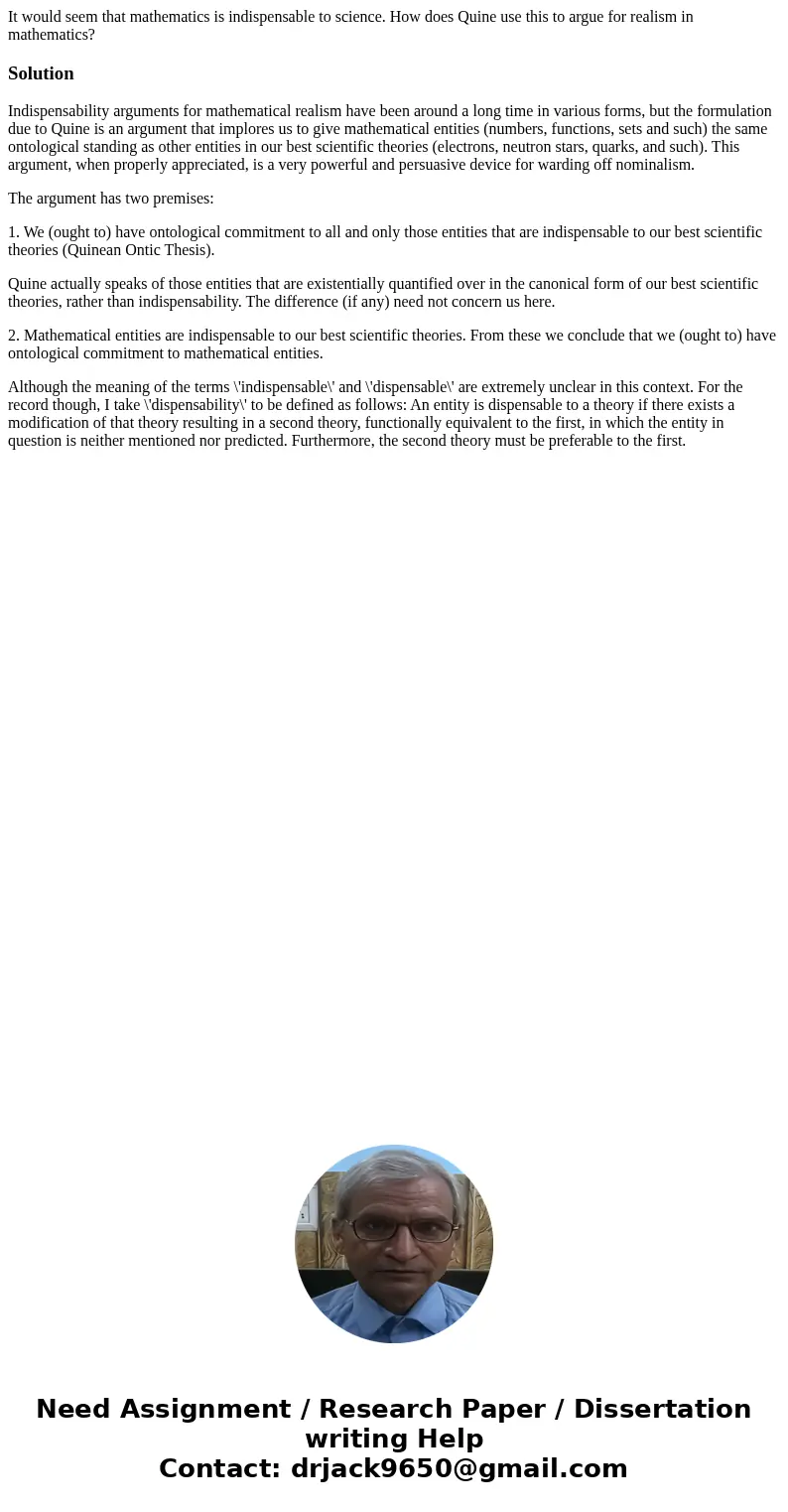It would seem that mathematics is indispensable to science H
It would seem that mathematics is indispensable to science. How does Quine use this to argue for realism in mathematics?
Solution
Indispensability arguments for mathematical realism have been around a long time in various forms, but the formulation due to Quine is an argument that implores us to give mathematical entities (numbers, functions, sets and such) the same ontological standing as other entities in our best scientific theories (electrons, neutron stars, quarks, and such). This argument, when properly appreciated, is a very powerful and persuasive device for warding off nominalism.
The argument has two premises:
1. We (ought to) have ontological commitment to all and only those entities that are indispensable to our best scientific theories (Quinean Ontic Thesis).
Quine actually speaks of those entities that are existentially quantified over in the canonical form of our best scientific theories, rather than indispensability. The difference (if any) need not concern us here.
2. Mathematical entities are indispensable to our best scientific theories. From these we conclude that we (ought to) have ontological commitment to mathematical entities.
Although the meaning of the terms \'indispensable\' and \'dispensable\' are extremely unclear in this context. For the record though, I take \'dispensability\' to be defined as follows: An entity is dispensable to a theory if there exists a modification of that theory resulting in a second theory, functionally equivalent to the first, in which the entity in question is neither mentioned nor predicted. Furthermore, the second theory must be preferable to the first.

 Homework Sourse
Homework Sourse